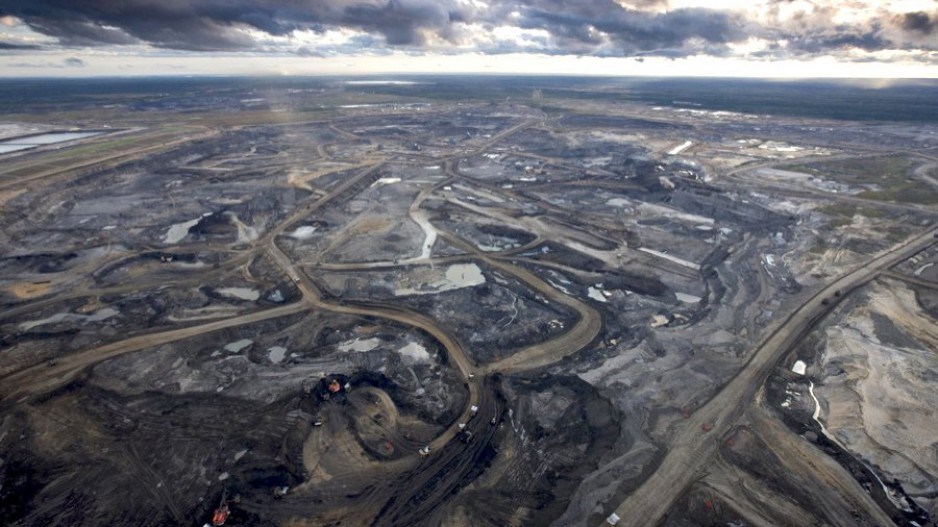The day after Teck Resources announced it was withdrawing the Frontier project from the environmental review process, markets and credit rating agencies reacted with a shrug.
It was, in many ways, a bigger deal for the Canadian government – which stands to lose $70 billion in revenue – than for Teck, which will take a $1.13 billion writedown.
By the end of trading on February 24, Teck’s share price had dropped only 2.6%, and Moody’s maintained its credit ratings unchanged for Teck and Alberta. That’s because analysts and shareholders didn’t expect Teck to move ahead with the Frontier project any time soon, especially not when it had just written down its share (21%) of the Fort Hills oilsands project at a cost of $910 million – due to low oil prices and pipeline constraints – and is focused on developing the $6.3 billion Quebrada Blanca 2 (QB2) copper project in Chile.
So even if the Trudeau government had approved the project, Teck had no immediate plans for Frontier. And as a company with a market cap of $7.5 billion, building a $20 billion oilsands project would have required a deep-pocketed partner or partners.
“It had a very big price tag,” said Jamie Koutsoukis, a Moody’s analyst who covers Teck. “They hadn’t allocated any money to it, other than what they needed to progress to get the permits.”
Teck is absorbed with the development of QB2, in which it owns a 60% stake.
“Until that’s done, this wasn’t even really plausible,” Koutsoukis said.
In the Frontier project’s case, a lot has changed since it was proposed nearly a decade ago. In that time, U.S. producers have roughly tripled oil production, which has helped push oil prices down, and long delays in getting new pipelines built, both in Canada and the U.S., have depressed the price Alberta producers can get for their oil.
Kevin Birn, vice-president of North American crude oil markets for IHS Markit, said a large oilsands project like Frontier needs oil prices to be in the US$65-per-barrel range to be viable. Last week, West Texas Intermediate, a global benchmark, was at US$50 per barrel.
But no big mining or oil company bases multibillion-dollar sanctioning decisions on current commodity prices – they forecast demand and prices out to the project’s forecast end, which in Frontier’s case would be 2066, if the project started in 2026.
The International Energy Agency (IEA) forecasts global oil prices will rise to US$90 per barrel by 2030 and US$103 per barrel by 2040. So, if the IEA is right, the Frontier project could be profitable.
Anas Alhajji, a global oil market expert, doesn’t buy the argument that the Frontier project would be too financially risky. Over the next 30 years, the world will need more oil than the current global supply, he said, including heavy oil from Canada.
“It is not about oil prices, nor costs. It is about the largest threat the North American oil industry faces: policy-makers.”
A growing number of institutional investors and lenders are increasingly demanding that climate change risk be factored into their decisions. And Canada has sent them some seriously mixed signals.
While the Trudeau government insists it supports resource development – and bought a pipeline to prove it – it struggles to reconcile how that can be done while living up to its Paris Agreement commitments.
And there are serious problems when it comes to First Nations and resource development. Most First Nations support projects like Frontier and the Coastal GasLink pipeline. But as Canada has witnessed in recent weeks, it takes only a vocal few who don’t support these projects to virtually paralyze the country.
Given how much Indigenous support Teck had garnered for the Frontier project, First Nations were not expected to be a major obstacle for it.
“However, global capital markets are changing rapidly and investors and customers are increasingly looking for jurisdictions to have a framework in place that reconciles resource development and climate change,” Lindsay writes. “This does not yet exist here today and, unfortunately, the growing debate around this issue has placed Frontier and our company squarely at the nexus of much broader issues that need to be resolved.”
It’s doubtful that some other big player will buy the Frontier project from Teck.
“Because there’s so few players left in the oilsands, I don’t know which other players are looking to get into this area,” Birn said.
In other words, the days of big, new oilsands projects like Frontier may be over.
“We do foresee the oilsands moving into a period of much lower levels of growth than Canada has been accustomed to, and that growth being dominated principally from expansion of existing facilities,” Birn said.




